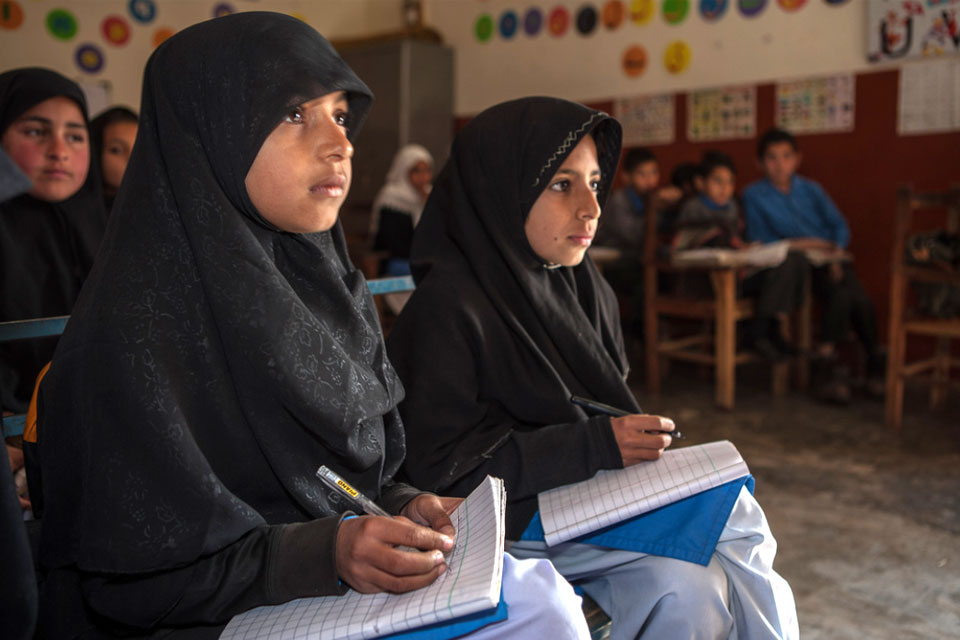DFID’s Chief Scientific Adviser, Chris Whitty, recently wrote an internal think piece for DFID reflecting on the world in 2035. With respect to education he commented,
Education - primary and secondary - is also the delivery sector which has the greatest potential to advance in quality in the next 20 years. It is starting from a low base but for the first time there is now sustained experimentation with new methods. We can expect incrementally better health and agriculture, but should expect and aim for substantially better quality education delivery.
Chris comes from a health background and has an impressive research background. Is he right in his assessment that research and evidence has the potential to transform education?
I am the Head of Profession for Education in DFID and have overall responsibility for supporting DFID’s education advisers to improve the impact of education programming in our partner countries. My blogs will focus on how DFID is working with others to progress ‘a learning for all’ agenda. One important aspect of this challenge is the generation and use of evidence.
In 2013 DFID’s Research and Evidence Division launched a series of rigorous literature reviews to find out what we know as we enter the post-2015 world. These reviews consolidated what we do know about improving learning outcomes and identified a number of important gaps. The reviews also uncovered a lot of evidence that is not being used effectively.
There seem to be many reasons why these lessons aren’t being pulled together and utilised. It is partly about the methods used and whether the findings are robust; it is partly about whether findings are feasible; and it is partly about the fact that much southern research is conducted by researchers based in the north. There is also an issue with the capacity of developing countries to generate robust research and, in turn, for policy makers to act on it.

In response to some of these challenges, DFID has launched a new education systems research programme . There are high ambitions for this programme. It not only seeks to promote top-quality education research, but also to build research communities, at both global and national levels, that engage with policy makers in evidence-based policy debate. It is also expected to make a real world impact by establishing systems for accurate and relevant data collection, management and use in selected countries.
DFID and others have also increased their investments in impact evaluation using randomised control trial methods that are the bread and butter of health colleagues. For example, DFID is working in partnership with the World Bank through the Strategic Impact Evaluation Fund (SIEF) to determine which education programmes and incentives improve learning. They’re then taking those results and making sure that policymakers and other development groups know what’s working and what’s not. The goal is to focus on evidence – proven solutions to help governments craft programmes and policies that fit their needs and give them results. This approach fits well with DFID’s drive to embed evidence into policy making – that is, in addition to finance, providing evidence and information on what works to improve service delivery and development outcomes.
Finally, a word on innovation DFID's Secretary of State recently announced that the Global Innovation Fund is open for business. She said, "This can support ambitious ideas to transform lives in some of the poorest countries in the world. As we work towards a new set of post-2015 development goals, fresh thinking and new ideas will be critical to ending extreme poverty for good." I will write more on innovation in education in a future blog, but innovation coupled with improved evidence will be crucial as we go forward.
Will these efforts have the transformative effects that DFID’s Chief Scientific Officer hopes for? I am optimistic that a combination of a more coherent research agenda, an invigorated global debate on education triggered by the post 2015 goals, and a more systematic approach to getting evidence into policy making will yield results. However, we do need to be cautious about over-optimism.
Improving learning outcomes in very under-funded and overstretched education systems will inevitably take time and sustained support. The international community will also need to be careful that an over-emphasis on learning the ’basics’ of literacy and numeracy does not crowd out other desirable outcomes for education such as citizenship and critical thinking. The Learning Metrics Task Force, a collaboration between UNESCO and the Brookings Centre for Universal Education, is currently looking at issues of both what learning is important and how to measure it. Their recommendations can be found here.
In my next blog I will be talking about how we are trying to use continuous professional development to improve the skills of our education advisers around the world.
Keep in touch - sign up for email updates from this blog.

Recent Comments